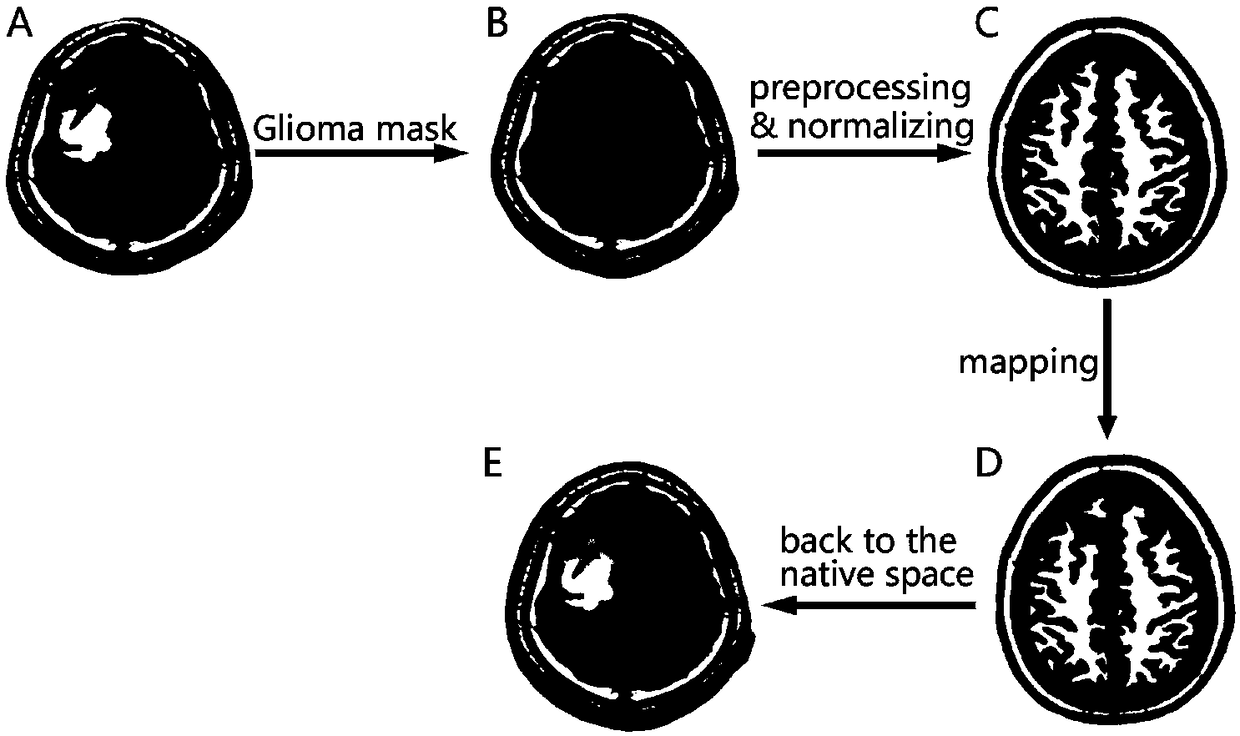Functional positioning method for supplementary motor area based on resting state
A positioning method and resting state technology, applied in the field of medical image processing and application, can solve the problems of not being able to meet clinical needs well, poor task execution of brain tumor patients, etc., to improve clinical feasibility, high accuracy, The effect of reducing engagement requirements
- Summary
- Abstract
- Description
- Claims
- Application Information
AI Technical Summary
Problems solved by technology
Method used
Image
Examples
Embodiment 1
[0026] In this embodiment, taking the positioning of the right SMA brain area as an example, it is necessary to start from the left (affected side) SMA and locate the target of the right (affected side) SMA, while considering that the SMA brain area located on the affected side may be Due to the deformation or displacement of the tumor, the functional localization of the supplementary motor area based on resting-state magnetic resonance imaging was carried out.
[0027] The inventor's machine research team used resting-state functional magnetic resonance technology to obtain 5-minute resting-state functional images and high-precision structural images of patients with gliomas in brain functional areas, and adopted multiple preprocessing: scanning layer time correction, head movement correction , mapped to the standardized space, detrending term, band-pass filtering and Scrubbing; at the same time of registration, remove its influence on the standardization through the tumor MAS...
PUM
 Login to View More
Login to View More Abstract
Description
Claims
Application Information
 Login to View More
Login to View More - R&D
- Intellectual Property
- Life Sciences
- Materials
- Tech Scout
- Unparalleled Data Quality
- Higher Quality Content
- 60% Fewer Hallucinations
Browse by: Latest US Patents, China's latest patents, Technical Efficacy Thesaurus, Application Domain, Technology Topic, Popular Technical Reports.
© 2025 PatSnap. All rights reserved.Legal|Privacy policy|Modern Slavery Act Transparency Statement|Sitemap|About US| Contact US: help@patsnap.com


